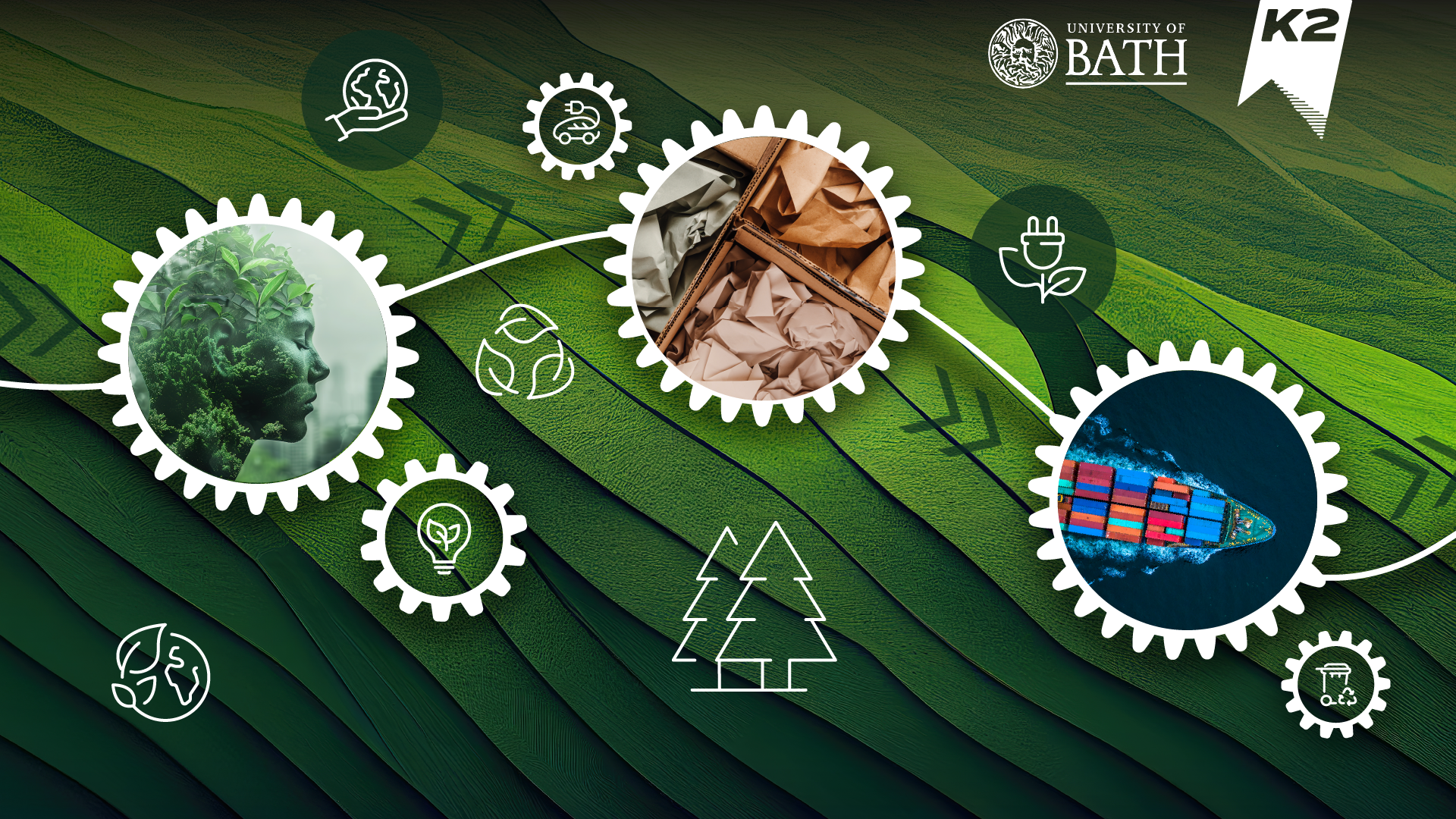The Knowledge Transfer Partnership project – an update on progress to date
Background
As part of our ongoing partnership with University of Bath, in 2022 K2 applied to the Knowledge Transfer Partnership (KTP) – a government scheme that provides funding for research projects – for part-funding for a 25-month project in the field of sustainability.
We announced in 2023 that the funding, obtained through Innovate UK, had been granted to K2 and, in October 2023, the project got underway.
Through the Knowledge Transfer Partnership (KTP) project, K2 have engaged experts in behavioural psychology from the University of Bath to design behavioural interventions to encourage more sustainable choices within K2’s value chain.
In 2023, K2 welcomed Project Lead Khushi, Research Associate from University of Bath, to the Global ESG & Compliance Team. Khushi, a behavioural scientist with an MSc in Behavioural Science from the London School of Economics and Political Science, has embedded herself within K2, whilst maintaining a strong link to the University of Bath.
With the project having recently reached the six-month milestone, and following a review with University of Bath representatives, Professor Brian Squire & Dr Iina Ikonen, we caught up with Khushi to find out how the project is going so far.

What is the aim of the project?
“By enhancing sustainability practices within the relocation sector, K2 aims to meet the expectations of environmentally conscious clients and pioneer sustainable mobility solutions.
This project utilises the academic expertise of the University, alongside the 20+ years of Global Mobility sector knowledge that K2 brings to the table, to help drive industry innovation.”
What is nudge theory, in a nutshell?
“Without minimising it too much, nudge theory is the act of making small changes to the external environment, to positively influence behaviour without infringing on an individual’s freedom of choice.
There are many different types of nudges that can be used. Part of my job during this project will be to work out what nudges will be most effective in this particular scenario.”
What work has been undertaken to date?
“A key first step has been reviewing existing sustainability practices and initiatives at K2, which involves looking at K2’s accreditations and internal sustainability strategies, as well as those of partners and clients, to see how they’re aligned.
It’s important to try and get a solid comprehension of stakeholder mindsets, and to understand the trends and sentiments within the Global Mobility market as a whole.
I have reviewed notable industry-relevant sustainability policies, plus I’ve undertaken a broader literature review, looking at studies outside the relocation realm that are still applicable, to help guide our research.”
What are the next steps?
“We are well on our way to understanding the primary drivers and barriers to sustainable behaviours within the industry. The next step will be the development of the interventions themselves. We will then need to conduct rigorous testing in a laboratory setting to help us determine the most effective approaches and so create a project roadmap.
In six short months, we have successfully laid the foundations for the project, and I am excited to move into the next phase. Watch this space for more updates!”
This project is just one piece of work currently being undertaken in partnership with University of Bath. A second project, which aims to identify and address the critical environmental impact of K2’s services using Life Cycle Assessment (LCA) and systems thinking methodologies, is also underway. We will be sharing an update of progress on this project shortly.

